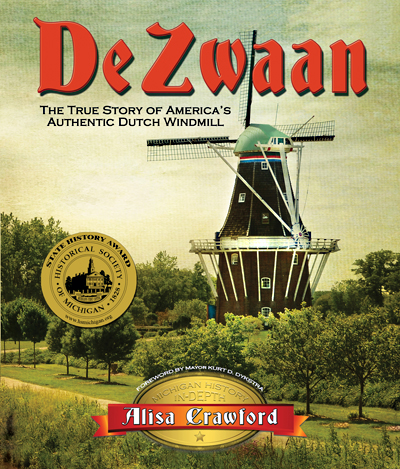In response to a prompt (called “Truths”) in an old class reunion questionnaire Vivian Mitchell Prindl ’35 wrote: “One is lucky if she learns to accept what comes. Life is much more pleasant if one has a contented frame of mind.”
More pleasant, indeed, and perhaps much longer. Vivian celebrated her 104th birthday this year and is quite likely K’s oldest living alumna. She matriculated to K from Detroit in 1931, two years into the Great Depression. She ended up earning her bachelor’s degree from New York State University College at Plattsburg, but she always considered herself a member of K’s class of 1935. “I enjoyed Kalamazoo College very much,” she said in a recent interview with archivist Lisa Murphy ’98. “Lemuel F. Smith taught chemistry. He was a very genial person. If anybody was late they had to bring him a candy bar, so once a semester the entire class would come late and bring him a candy bar.”
She shared many other memories, some somber. In the questionnaire Vivian wrote, “Allan Hoben was president when I first attended K. I remember the sadness we all felt when we learned of his terminal illness. The last time he spoke at Chapel, every student attended.”
There were lighter moments. Dancing to records in the sun room of Trowbridge Hall was one she confided to Lisa. Vivian also shared fondness Professors Mulder (English), Harper (sociology) and Dunbar (history). “Professor Praeger [biology] was from County Down in Ireland,” said Vivian. “He felt like he knew me because my father was from County Antrim.”
Vivian had been to business college for a year before she came to K, and that paid off, literally, because she knew how to type. Campus jobs in the dining room (a wellspring for many students) paid 25 cents an hour. But because Vivian could type she was hired by the business office at 30 cents an hour. Everyone who lived on campus, even students who had scholarships, had to work, according to Vivian. It was the Depression. “We didn’t think about not having money because no one had money.” She remembers companies shut down, men out of work, and soup kitchens.
Weekend fun usually meant hikes or walks–things you could do that didn’t cost money. Like those extemporaneous dances in the Trowbridge sun room. “I danced with a boy I dated a couple of years,” said Vivian. And there was the “beau parlor” in Trowbridge. “If you were entertaining you could go to a small room as long as you kept the door open,” Vivian added. “These were the years before blue jeans, so we dressed up. If we were leaving campus to go downtown we were told to wear hat and gloves.”
Vivian also had a key part in the annual Christmas Carol Service. That event called for someone to play the Spirit of Christmas, and the red dress for the part was pretty tiny. “I was small enough to fit into it so I was chosen as the Spirit.”
Vivian married Frank Prindl, and they had two children. Vivian also enjoyed a long teaching career in schools in Kentucky, Michigan, Florida and in Bonn, Germany. After retirement she continued to teach on a volunteer basis. And she traveled widely, especially to England and Mexico, but she also has visited South America, Indonesia, the Philippines and Africa.
K in the early 1930s sounds like a very different place, and yet, Vivian’s life (still going strong) suggests that K cultivated curiosity, independence and a yen for travel and adventure then as much as now.











